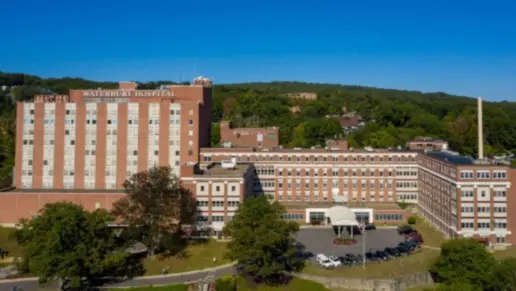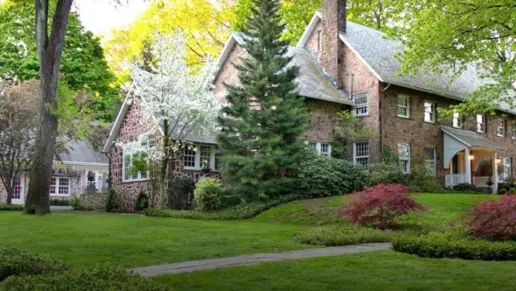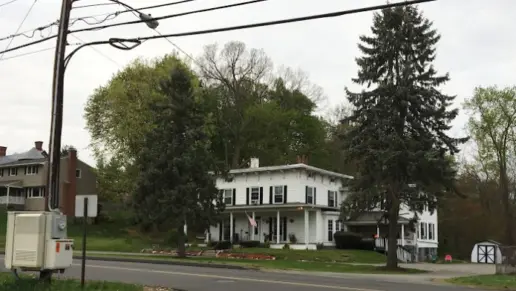They have one of the best work teams I know. I love his passion for work and for helping people. It is a very good place.
About Community Health Services – Behavioral Health Department
Community Health Services - Behavioral Health Department is located in Windsor, Connecticut. Community Health Services - Behavioral Health Department provides services geared toward children, adolescent, and adults.
 Accreditations
at Community Health Services – Behavioral Health Department
Accreditations
at Community Health Services – Behavioral Health Department

Joint Commission
The Joint Commission, formerly known as JCAHO, is a nonprofit organization that accredits rehab organizations and programs. Founded in 1951, the Joint Commision's mission is to improve the quality of patient care and demonstrating the quality of patient care.
Joint Commission Accreditation: Yes
 Treatment
at Community Health Services – Behavioral Health Department
Treatment
at Community Health Services – Behavioral Health Department
 Alcoholism
Alcoholism
The goal of treatment for alcoholism is abstinence. Those with poor social support, poor motivation, or psychiatric disorders tend to relapse within a few years of treatment. For these people, success is measured by longer periods of abstinence, reduced use of alcohol, better health, and improved social functioning. Recovery and Maintenance are usually based on 12 step programs and AA meetings.
 Drug Addiction
Drug Addiction
Drug rehab in Connecticut provides the professional support that is often necessary to break free from drug dependency. With proper treatment, individuals can make changes that restore balance and health to their lives and achieve long-term recovery.
 Dual Diagnosis
Dual Diagnosis
Many of those suffering from addiction also suffer from mental or emotional illnesses like schizophrenia, bipolar disorder, depression, or anxiety disorders. Rehab and other substance abuse facilities treating those with a dual diagnosis or co-occurring disorder administer psychiatric treatment to address the person's mental health issue in addition to drug and alcohol rehabilitation.
 Mental Health and Substance Abuse
Mental Health and Substance Abuse
A combined mental health and substance abuse rehab has the staff and resources available to handle individuals with both mental health and substance abuse issues. It can be challenging to determine where a specific symptom stems from (a mental health issue or an issue related to substance abuse), so mental health and substance abuse professionals are helpful in detangling symptoms and keeping treatment on track.
 Opioid Addiction
Opioid Addiction
Opioid rehabs specialize in supporting those recovering from opioid addiction. They treat those suffering from addiction to illegal opioids like heroin, as well as prescription drugs like oxycodone. These centers typically combine both physical as well as mental and emotional support to help stop addiction. Physical support often includes medical detox and subsequent medical support (including medication), and mental support includes in-depth therapy to address the underlying causes of addiction.
 Insurance & Financials
at Community Health Services – Behavioral Health Department
Insurance & Financials
at Community Health Services – Behavioral Health Department
Medicaid
Private insurance
Self-pay options
Financing available
Sliding scale payment assistance
Medicare
 Programs
at Community Health Services – Behavioral Health Department
Programs
at Community Health Services – Behavioral Health Department
 Adolescence program
Adolescence program
 Adult program
Adult program
 Elderly program
Elderly program
 HIV/AIDS program
HIV/AIDS program
 Program for men
Program for men
 Program for women
Program for women
 Young adult program
Young adult program
 Levels of Care
at Community Health Services – Behavioral Health Department
Levels of Care
at Community Health Services – Behavioral Health Department
 Outpatient
Outpatient
Outpatient Programs (OP) are for those seeking mental rehab or drug rehab, but who also stay at home every night. The main difference between outpatient treatment (OP) and intensive outpatient treatment (IOP) lies in the amount of hours the patient spends at the facility. Most of the time an outpatient program is designed for someone who has completed an inpatient stay and is looking to continue their growth in recovery. Outpatient is not meant to be the starting point, it is commonly referred to as aftercare.
 Aftercare Support
Aftercare Support
Completing a drug or alcohol rehab program shouldn't spell the end of substance abuse treatment. Aftercare involves making a sustainable plan for recovery, including ongoing support. This can include sober living arrangements like halfway houses, career counseling, and setting a patient up with community programs like Alcoholics Anonymous (AA) or Narcotics Anonymous (NA).
 Clinical Services
at Community Health Services – Behavioral Health Department
Clinical Services
at Community Health Services – Behavioral Health Department
Cognitive Behavioral Therapy
Cognitive Behavioral Therapy (CBT) is a therapy modality that focuses on the relationship between one's thoughts, feelings, and behaviors. It is used to establish and allow for healthy responses to thoughts and feelings (instead of unhealthy responses, like using drugs or alcohol). CBT has been proven effective for recovering addicts of all kinds, and is used to strengthen a patient's own self-awareness and ability to self-regulate. CBT allows individuals to monitor their own emotional state, become more adept at communicating with others, and manage stress without needing to engage in substance abuse.
Couples Therapy
Whether a marriage or other committed relationship, an intimate partnership is one of the most important aspects of a person's life. Drug and alcohol addiction affects both members of a couple in deep and meaningful ways, as does rehab and recovery. Couples therapy and other couples-focused treatment programs are significant parts of exploring triggers of addiction, as well as learning how to build healthy patterns to support ongoing sobriety.
Dialectical Behavior Therapy
Dialectical Behavior Therapy (DBT) is a modified form of Cognitive Behavioral Therapy (CBT), a treatment designed to help people understand and ultimately affect the relationship between their thoughts, feelings, and behaviors. DBT is often used for individuals who struggle with self-harm behaviors, such as self-mutilation (cutting) and suicidal thoughts, urges, or attempts. It has been proven clinically effective for those who struggle with out-of-control emotions and mental health illnesses like Borderline Personality Disorder.
Family Therapy
Research clearly demonstrates that recovery is far more successful and sustainable when loved ones like family members participate in rehab and substance abuse treatment. Genetic factors may be at play when it comes to drug and alcohol addiction, as well as mental health issues. Family dynamics often play a critical role in addiction triggers, and if properly educated, family members can be a strong source of support when it comes to rehabilitation.
Group Therapy
Group counseling represents the most effective treatment in many situations, including but not limited to: relationship difficulties; depression; interpersonal conflicts; personality issues; family conflicts; substance abuse; poor social skills; loss or isolation; anger management; and, anxiety. Groups are led by licensed therapists and gathers about 6-12 individuals on a weekly basis for 1 hour.
Individual Therapy
Individual counseling provides you with the opportunity to work one-on-one with a therapist. Areas often addressed in counseling include development of skills to manage feelings of anxiety or depression, stress, coping with difficult relationships, understanding identity, improving self-esteem, recovering from trauma, and improving your social functioning, to name just a few.
Life Skills
Life skills trainings involve all the skills a person must have in order to function successfully in the world. These include time management, career guidance, money management, and effective communication. Truly successful addiction recovery is based on the ability to not only live substance-free, but to thrive. Life skills teaches the practical necessities of functioning in society, which sets clients up for success in life, and therefore sobriety.
Trauma Therapy
Trauma therapy addresses traumatic incidents from a client's past that are likely affecting their present-day experience. Trauma is often one of the primary triggers and potential causes of addiction, and can stem from child sexual abuse, domestic violence, having a parent with a mental illness, losing one or both parents at a young age, teenage or adult sexual assault, or any number of other factors. The purpose of trauma therapy is to allow a patient to process trauma and move through and past it, with the help of trained and compassionate mental health professionals.
 Settings and Amenities
at Community Health Services – Behavioral Health Department
Settings and Amenities
at Community Health Services – Behavioral Health Department
-
Residential setting
-
Private setting
 Contact
Community Health Services – Behavioral Health Department
Contact
Community Health Services – Behavioral Health Department
503 Windsor Avenue
Unit 511
Windsor, CT 06095


